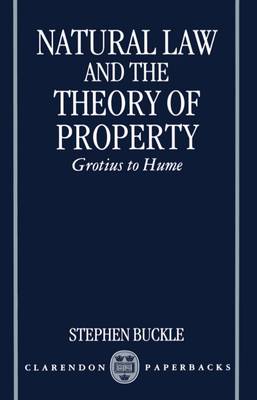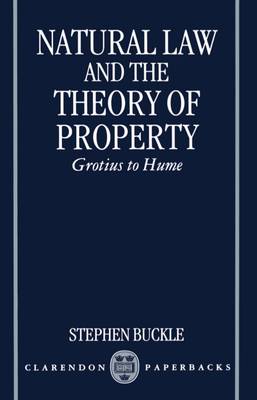
- Afhalen na 1 uur in een winkel met voorraad
- Gratis thuislevering in België vanaf € 30
- Ruim aanbod met 7 miljoen producten
- Afhalen na 1 uur in een winkel met voorraad
- Gratis thuislevering in België vanaf € 30
- Ruim aanbod met 7 miljoen producten
Zoeken
Omschrijving
In this book, Stephen Buckle provides a historical perspective on the political philosophies of Locke and Hume, arguing that there are continuities in the development of seventeenth- and eighteenth-century political theory which have often gone unrecognized. He begins with a detailed exposition of Grotius's and Pufendorf's modern natural law theory, focusing on their accounts of the nature of natural law, human sociability, the development of forms of property, and the question of slavery. He then shows that Locke's political theory takes up and develops these basic themes of natural law. Buckle argues further that, rather than being a departure from this tradition, the moral sense theory of Hutcheson and Hume represents an attempt--which is not entirely successful--to underpin the natural law theory with an adequate moral psychology.
Specificaties
Betrokkenen
- Auteur(s):
- Uitgeverij:
Inhoud
- Aantal bladzijden:
- 340
- Taal:
- Engels
- Reeks:
Eigenschappen
- Productcode (EAN):
- 9780198240945
- Verschijningsdatum:
- 21/10/1993
- Uitvoering:
- Paperback
- Formaat:
- Trade paperback (VS)
- Afmetingen:
- 140 mm x 215 mm
- Gewicht:
- 494 g

Alleen bij Standaard Boekhandel
+ 257 punten op je klantenkaart van Standaard Boekhandel
Beoordelingen
We publiceren alleen reviews die voldoen aan de voorwaarden voor reviews. Bekijk onze voorwaarden voor reviews.








